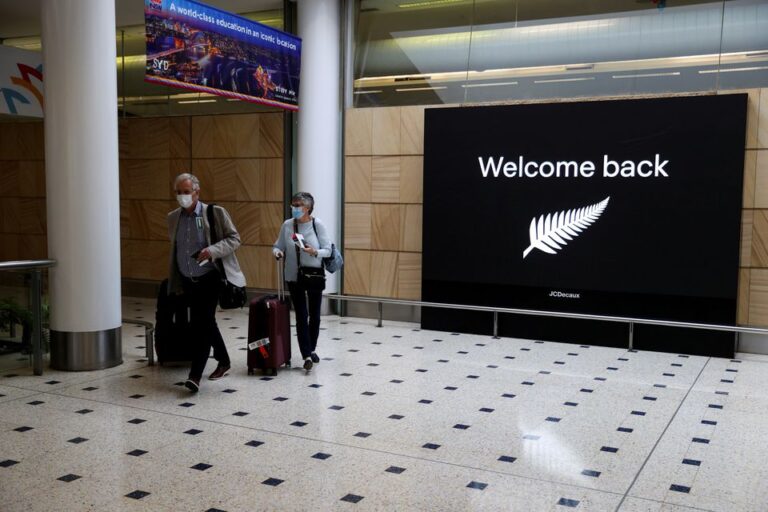
MELBOURNE, (Reuters) – Quarantine-free travel from New Zealand to Australia will resume from Monday, Australia’s tourism minister said on Sunday, as the country readies itself for a partial reopening of its international borders for the first time since March 2020.
Vaccinated Australian citizens and permanent residents living in New South Wales, Victoria and the capital Canberra will be free to fly internationally from Monday without the need of an exemption or to quarantine upon return.
For now, however, only tourists from neighbouring New Zealand will be allowed into Australia, provided they are vaccinated.
“The resumption of quarantine free travel from New Zealand to Australia is another important marker on our road to recovery,” Tourism Minister Dan Tehan said in a statement.
Australia closed its borders at the start of the pandemic, allowing only a limited number of citizens and permanent residents to return from abroad, subject to a mandatory 14-day quarantine period in a hotel at their own expense.
Over 80% of people 16 and older in New South Wales, Victoria and Canberra are fully vaccinated – a condition for the resumption of international travel – meaning that some 14 million Australians will be free to leave and re-enter the country if they are fully vaccinated.
But while airlines and tourism agencies have reported “massive demand” for services, only 23% of Australians feel confident about making travel plans in the next year, a survey by consumer advocacy group Choice showed last week.
There were more than 1,200 new coronavirus cases recorded across Australia on Sunday, with 1,036 in Victoria and 177 infections in New South Wales. There were 13 related deaths.
While the Delta outbreak kept Sydney and Melbourne in lockdowns for months until recently, Australia’s COVID-19 cases remain far lower than many comparable countries, with just over 170,500 infections and 1,735 deaths.
Nearly 77% of all Australians have been now fully vaccinated, and more than 88% have received their first dose.






